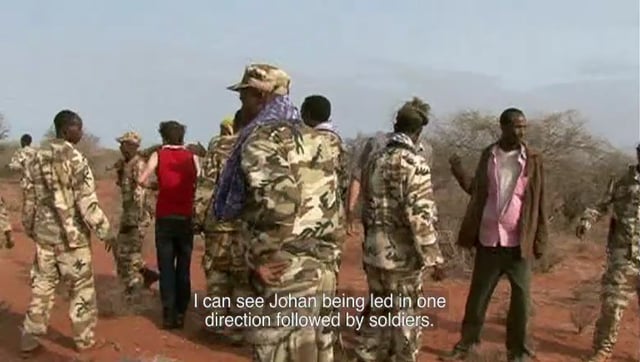The two Swedish journalists Martin Schibbye and Johan Persson was shot and arrested when they illegally tried to enter the closed Ethiopian state Ogaden to report the conditions in the state.
For four days Schibbye and Persson was held in the desert where they were forced to participate in a film that was going to be used as evidence against them. The interrogations were harsh and they were subject to a mock execution.
Eventually they were sentenced by an Ethiopian court to eleven years in prison but was released after just over a year since they asked the government for mercy.
Meanwhile Abdullahi Hussein wondered how he would get out of Ogaden. He was the advisor to the Regional President Abdi Omar Muhamud and head of the Ogaden TV channel, Cakaara News. Hussein had reacted on the abuse and misuse of power against civilians and for a few years he had secretly copied the evidence of abuse from the president’s own video files. Abdullahi was planning to get out of Ogaden and sharing the files to international media and human rights organizations.
The files contains internal meetings where individual officers and soldiers of the regional militia testify about arbitrary arrests, torture, killings, extortion and rape. There is also evidence of a previously unknown massacre of civilians.
Abdullahi was with the president when Johan and Martin were arrested and he could follow the course of events in the desert from the “other side”. When he got the filmed material in his hand, he decided that it was time to leave Ogaden.
In the film Johan, Martin and Abdullahi gives a frightening picture of Ogaden, a region that has become increasingly interesting for international oil and mineral companies, including the Swedish Lundin Group.
By Matilda Arborelius
